People. Create. Change: Installations
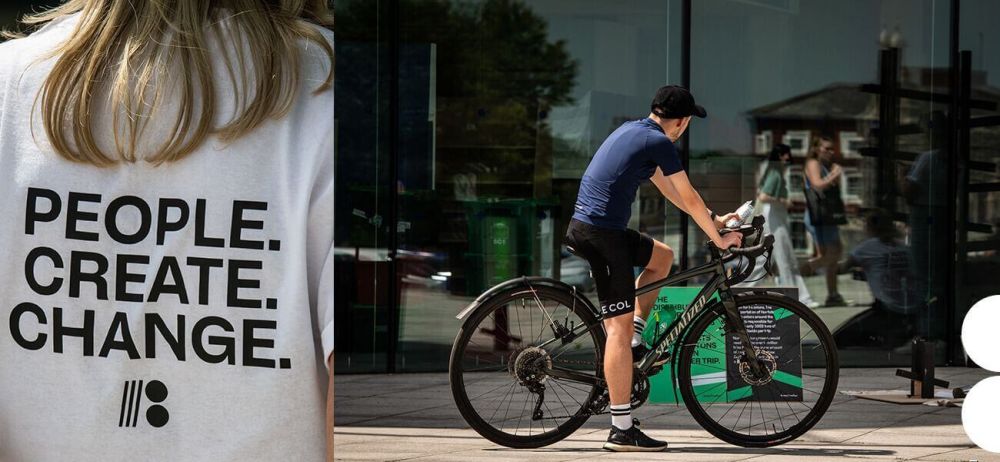
Last week, we at BuxtonThreeTwo took to The Forum in Norwich to share the installations we built as part of our People. Create. Change. campaign.
The People. Create. Change. campaign has been an opportunity to raise awareness of the environmental issues currently facing our society. Each of our three installations had a different message and represented a different environmental issue, and we shared some ways in which both businesses and individuals can make a difference with their day-to-day actions.
Today, we’re sharing the meaning and inspiration behind each installation.
Palm Oil
Every hour, the equivalent of 300 football pitches of forests are destroyed to make way for palm oil plantations. That’s 9.91m2 of forest every 0.1 seconds.
The destruction of forestry isn’t only responsible for the disappearance of ecosystems, habitats and wildlife - the Indonesian government has legalised the burning of natural forests and peatlands to make way for palm oil plantations. When the forests burn, tons of carbon that was stored in the plants is released into the atmosphere. Furthermore, hundreds of indigenous communities are displaced as a result of these fires, and lose their homes and land to make way for these plantations. The palm oil trade is a human rights issue, as well as an environmental one.
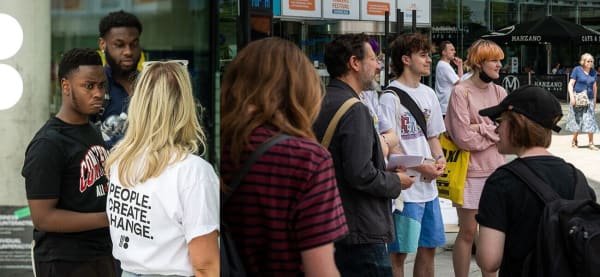
We took this fact to The Forum, and to represent the amount of space that is lost every 0.1 seconds for palm oil plantations, we taped off a 9.91m2 square. We then asked passers by to open the stopwatch on their phone, and stop the clock at exactly 0.1 seconds.
Unsurprisingly, it’s harder than you think.
While the challenge brought out a fun sense of competition between those who gave it a go, everyone was shocked thinking about the amount of natural forestry being lost all over the world in the time it took to finally stop at 0.1 seconds.
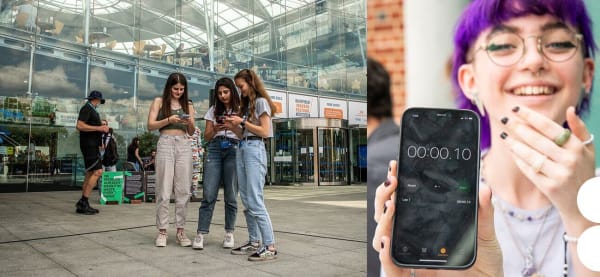
We are encouraging businesses to use alternatives to palm oil in their products, and for consumers to check that their everyday items don’t contain palm oil. We’ve compiled a list of some of our favourite brands that are avoiding palm oil, here.
Food Miles
20,000 tons of onions are exported from New Zealand to the UK each year. This 8-week trip emits 2,252 metric tons of carbon dioxide.
Meanwhile, Norfolk is an agricultural hub known for its onions. The transportation of Norfolk-grown onions around the county is responsible for emitting only 0.002 tons of carbon dioxide per trip. Norfolk onion growers would need to make over 1.1 million trips to emit the same amount of carbon dioxide as New Zealand grown onions do in a year.
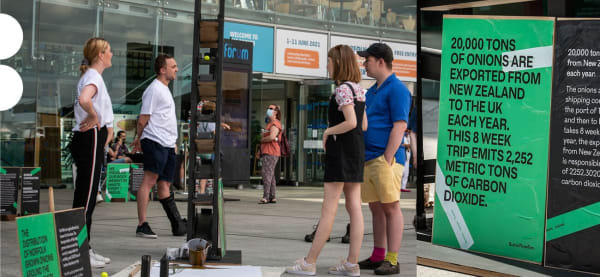
To represent the differences between these two trips, we made two wooden tracks. The first stands at almost 2.5 metres high, and consists of 8 ramps that a ball travels down before knocking over a jug of paint. The second is less than 30cm in height, and consists of one small ramp that a ball travels down before knocking a few splatters of paint from a glass.
The large track represents the 8-week trip that New Zealand grown onions embark on to make it to British supermarkets, and the full jug of paint represents the amount of carbon that this trip is responsible for emitting. The small track represents the journey time of Norfolk grown onions around the county, and the small amount of carbon that is emitted from each trip.
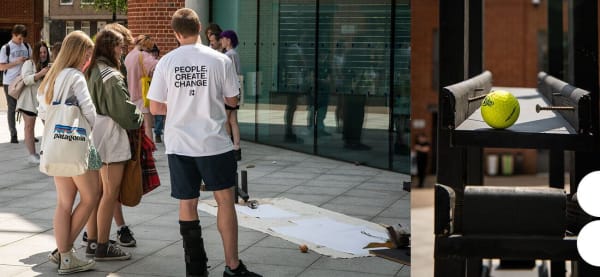
This installation set out to raise awareness of the journey our food takes to get to our plate. When we eat fruit and vegetables in season, we are less likely to need to import vegetables at unconventional times of the year. We encourage businesses to work with local suppliers, and for consumers to check where their food is coming from, and to opt for seasonal fruit and vegetables that are locally grown. You can check out a list of some of our favourite places in Norfolk to get locally produced groceries, here.
Waste
In the UK, we produce our body weight in waste every 7 weeks. That’s over 7 times our body weight every year.
Non-recyclable waste is sent to landfills or incinerators. Incinerators generate pollution that is harmful to our health - burning rubbish releases dioxins, lead, and mercury into the atmosphere. Incinerators are also responsible for the emission of carbon dioxide. For 1 ton of burnt rubbish, approximately 1,246 kg of carbon dioxide is emitted.
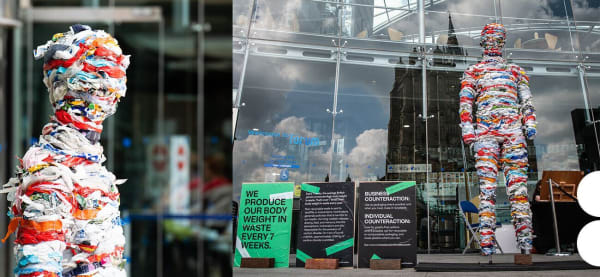
To help visualise the amount of waste we produce in 7 weeks, we built a sculpture made of rubbish. Inspired by the Norwich textile industry, our ‘wasteman’ is woven with hundreds of pieces of wasted plastic. He attracted people of all ages with his colours and grandeur, but don’t be fooled - the rate at which we are producing waste is destroying habitats, producing carbon dioxide and pumping toxins into our atmosphere.
Our Photographer, Alex, and Creative Director, James, took the ‘wasteman’ into nature, to demonstrate how unnatural and damaging waste looks in untouched environments.
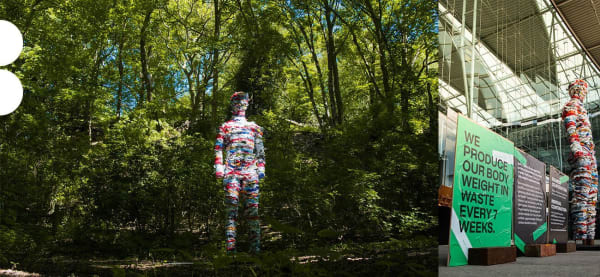
We are encouraging businesses to use no packaging where possible, and if you must, opt for recyclable or biodegradable materials. Individuals should opt for products with no packaging, recycle and compost as much as possible and reuse plastics if they must be bought. We’ve shared some of our favourite products with environmentally conscious packaging, here.

Communications